A psychology research lab at the University of Maryland, College Park, funded by the federal government, is enticing minors to take part in an invasive survey without obtaining permission from their parents.
The Lavender Lab website prominently asks, “Are you between 13-17 years old?” and “Do you identify as LGBTQ+ and a Person of Color (POC)?” promising eligible teens a $15 gift card for participation.
The survey, as explained on the lab’s site, aims to examine the effects of racism and anti-LGBTQ+ experiences on the mental well-being and substance use of LGBTQ teenagers from racial or ethnic minority backgrounds.
To be eligible for the survey, participants must meet certain criteria, such as being 13-17 years old, having tried alcohol or other substances, and identifying as LGBTQ+ and a racial or ethnic minority.
The survey’s eligibility form contains questions regarding gender identity, sexual orientation, substance use, and social influences like friendship circles’ drinking habits.
Participants are asked to provide their contact details, with a disclaimer about potential privacy risks due to the collection of this information.
No mention is made in the eligibility form about the need for parental consent; however, there is a provision to address any inquiries from parents, focusing on the study being about “BIPOC teens” without referencing gender or sexuality.
Eligible participants are promised a $15 online gift card upon completion of the 35-45 minute survey.
The survey delves into intimate topics, including dating experiences, instances of physical harm in relationships, sexual coercion, partner demographics, sexual history, alcohol consumption, racial perceptions, and parental relations.
At the completion of the survey, participants are offered an opportunity to join a longer study spanning 2.5 years with the potential to earn up to $360 in gift cards.
The Lavender Lab research project is supported by a grant from the National Institutes of Health and overseen by Ethan Mereish, an associate professor at the University of Maryland, with involvement from other university staff and students in the study.

